Post iPhone ergo propter iPhone
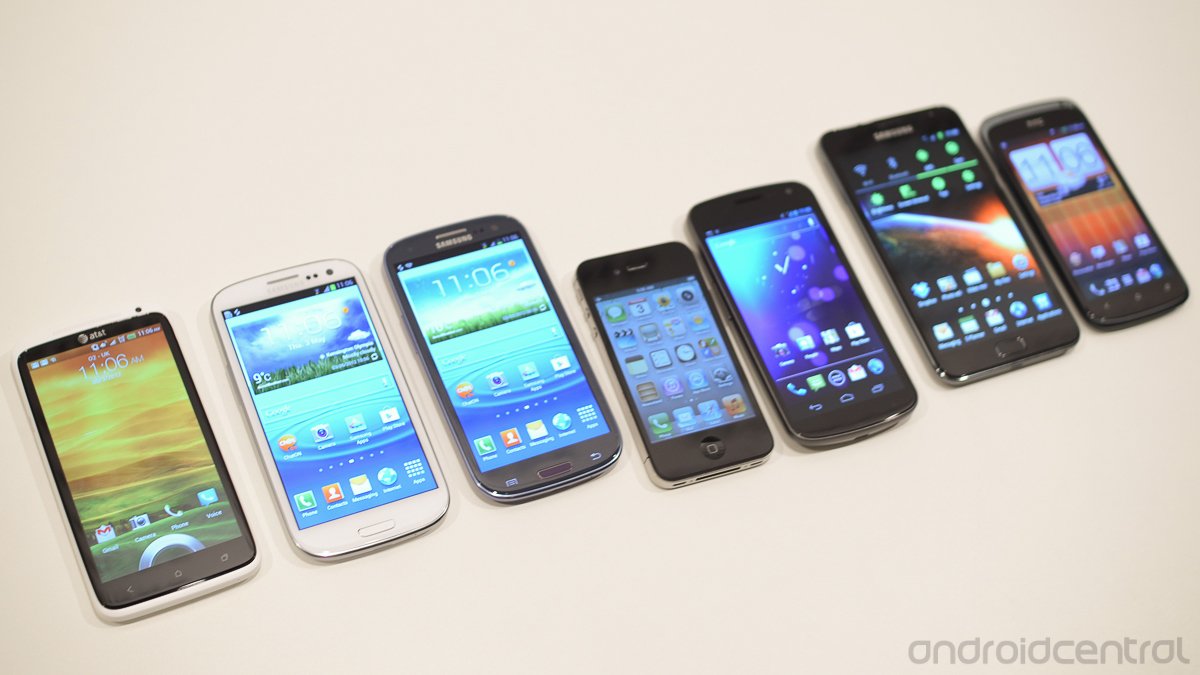
"Post hoc ergo propter hoc" is Latin for "after it, therefore because of it". That it comes from Latin should indicate how far back that particular fallacy can be traced. Yet ever since Apple launched the original iPhone in 2007, it has been the point of comparison for every flagship phone, from every manufacturer, on every carrier. Just like "post hoc ergo propter hoc" isn't always -- or even often -- true, "post iPhone ergo propter iPhone" isn't always true. Yet time after time, phone after phone, everything from hardware design to software features are taken as derived from, or as being a response to, the iPhone.
There's a theory in combat that dates back to Sun Tsu, if not earlier, called "strike first to gain the initiative". If, in a fight, all you do is defend, you'll eventually make a mistake and get tagged. Even if you're a natural counter-puncher, if you don't take an opportunity when it opens up, at best you'll stall your way to stalemate (and get booed for your efforts), and at worst you'll mess up at some point and get clobbered. That's why a good fighter knows everything is an attack. Everything is an attempt to turn an opponent's mind away from acting and towards reacting.
It can be obvious -- a strike or shoot or something else an opponent has to deal with. Or it can be subtle -- a change of angle or distance that rocks them back on their heels or shoulders and messes with their balance and timing.
Those same essential strategic truths apply to the ancient battlefield, the modern Octagon, and business -- including the smartphone business.
In 2007 Apple didn't introduce a better Treo or BlackBerry, they introduced a better device. They didn't take a tiny little step that entrenched competitors could quickly match. They took a diagonal leap that entrenched competitors either couldn't quickly match, or didn't even understand. They changed the rules of the game. They attacked.
It didn't matter that the 2007 iPhone lacked apps or copy/paste or unobtrusive notifications or MMS or any of a dozen features existing smartphone has on their neat little checklists. It mattered only that multitouch, and the way the iPhone interface leveraged it to make a new experience, was so compelling no one cared what it was missing.
That was an attack.
Master your iPhone in minutes
iMore offers spot-on advice and guidance from our team of experts, with decades of Apple device experience to lean on. Learn more with iMore!
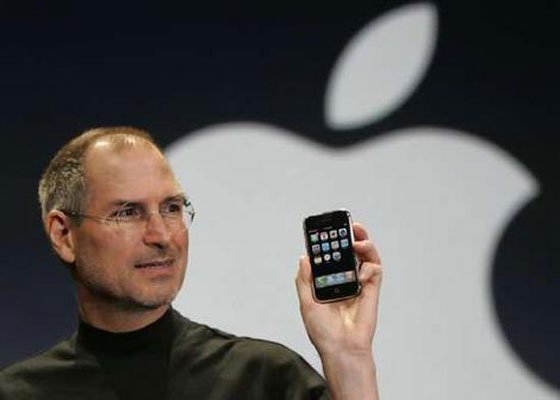
The shift was so radical that for years after, every other flagship, or would be flagship phone was pitched by desperate competitors and attention-seeking media alike as an "iPhone killer". (Early among them, the Samsung Instinct -- a coincidence, I'm certain.) That the iPhone made every headline, that every device was cast not as something unique unto itself but as something wholly dependent on the gravity well of the iPhone, was the punchline. (No true iPhone killer would ever be called that -- everyone would be too busy talking about it to bother mentioning the iPhone.)
And since then, no one else has done much attacking. Hell, most of Apple's competitors ignored or derided the iPhone at launch. Smartly, Google didn't. They spun on a dime and turned their new Android acquisition from a BlackBerry or Windows Phone Standard (or Nokia Communicator, if you lived in Europe) competitor to an iPhone competitor almost over night.
Yet Apple didn't react. They didn't rush to match any Android features that the iPhone was missing or toss in a hardware keyboard to win over legacy smartphone users. They changed the rules again. They acted again. They attacked again. They announced the App Store.
Palm got back into the game sooner than the other traditional smartphone vendors. But when they made the leap from Palm OS to webOS it was far more audacious than Android. (That tiny, cash-starved Palm literally coded circles around mighty Google, and made a more Google-esque product than Google itself, should be scrawled in permanent marker atop the dessert-laden garden in Mountain View so as to never be forgotten.) While elements of the Palm Pre were inarguably iPhone inspired -- having the former head of Apple hardware, Jon Rubenstein, as their CEO and a lot of Apple engineers on their team will do that -- they played a smart strategy. Rather than matching iPhone features, they tried to hit Apple where Apple was weak -- multitasking, notifications, unified messaging. And unlike the early days of Android, they did it in an elegant, tasteful way.
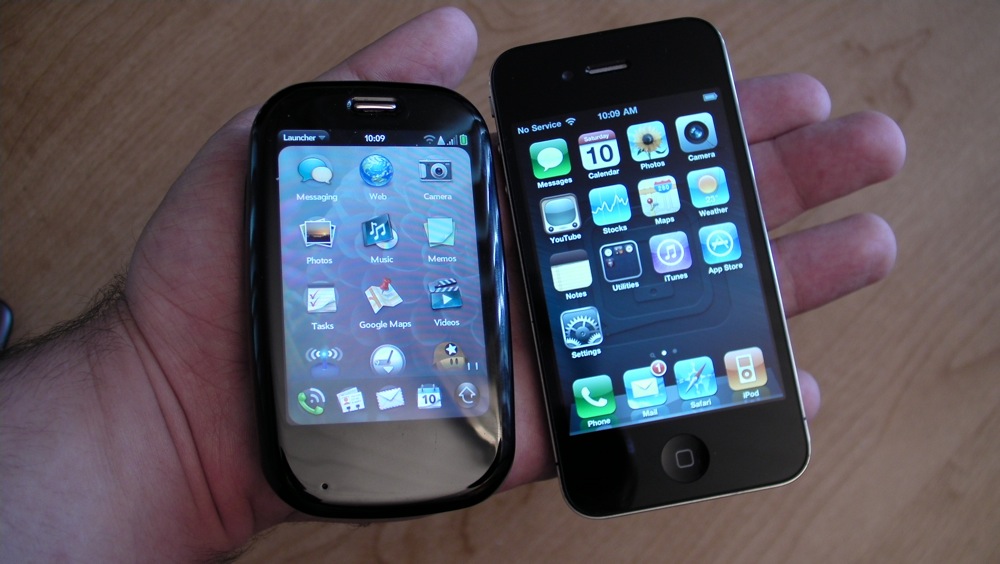
RIM floundered with the Storm. And the Storm 2. And the Torch. Microsoft stumbled with Windows Mobile 6. And Windows Mobile 6.5. Still, other platforms started adding their own centralized software stores. Android Market (now Google Play), Nokia Ovi Store (no, really), webOS App Catalog BlackBerry App World. By and large, like Palm with the Pre, they tried to differentiate themselves by going where they thought Apple was weak -- openness. It turned out, however, that openness didn't translate into a better user experience. Having great apps and being able to take credit cards in large amount of global markets were far more important. (The "iTunes advantage" was the platform equivalent of having seized the high ground before the battle ever begun.)
Sadly, Palm never made webOS work well enough, fast enough, to catch on before they were brutally bought and betrayed by HP corporate intrigue and ineptitude. Android, however, got some body shots in. The Nexus One was smartly timed to the hit the market right in the middle of Apple's typical year-long product cycle. With great hardware, an improved OS, and features like voice control, it caught influencers at the perfect moment and got a lot of attention. The Droid, meanwhile, seized on the huge, Verizon-sized hole Apple left in its flank by being locked to AT&T in the U.S. for 4 long years. (The Evo did similar on Sprint, and I'm sure something did on T-Mobile as well...)
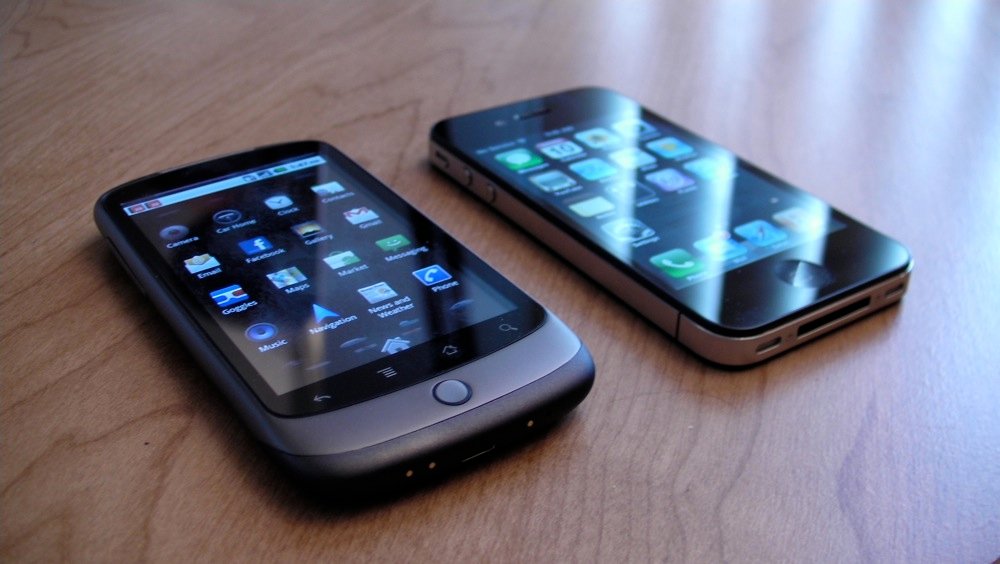
Apple's limited carrier footprint couldn't stop Android from gaining incredible non-AT&T marketshare, but the iPhone remained a strong enough device that it not only held its own ground with but one flagship a year, on one carrier in the U.S., but kept on growing it.
And then Apple changed the rules again. They acted again. They attacked again. They released the iPad.
It was a tablet launched in 2010 that didn't (and still doesn't) have a desktop or windowing system, that didn't (but now does) have multitasking for 3rd party apps. Like the iPhone in 2007, it didn't matter that the iPad didn't have nearly as much as the decade of Tablet PCs before it. It utterly obliterated and obsoleted its predecessors before it even shipped.
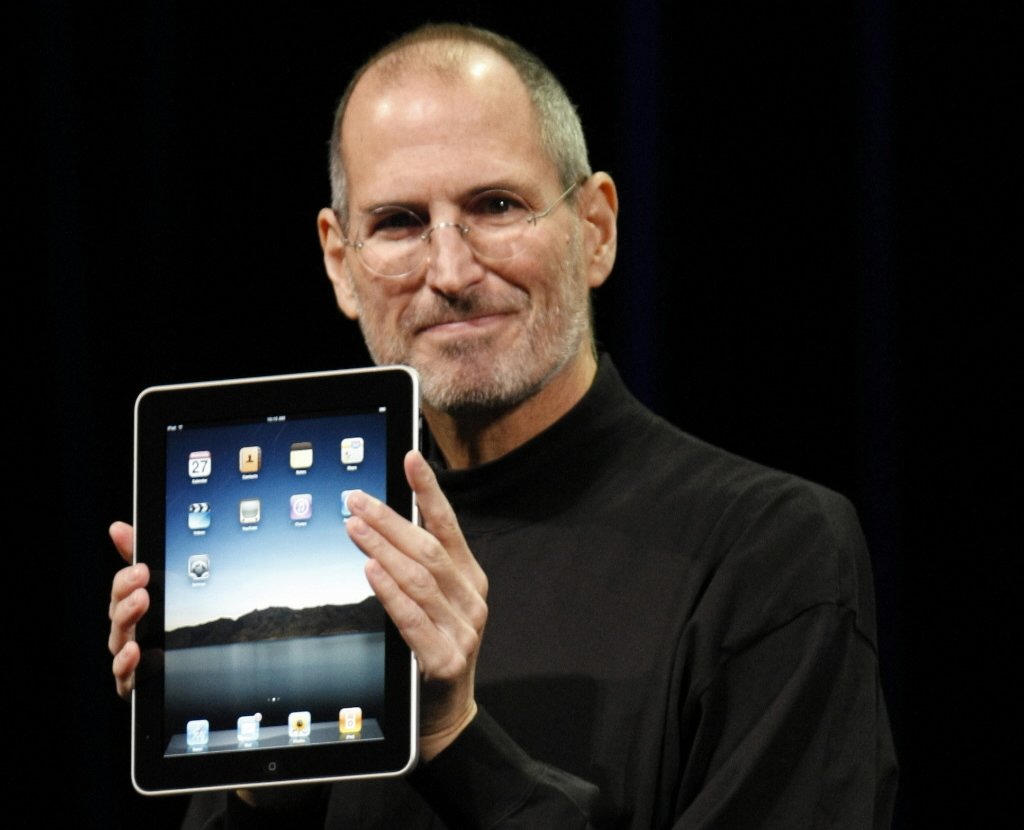
Again, Google reacted. They spun on a dime and rushed out (a still closed-source version of Android), Honeycomb, to compete in the tablet space. Absent the carrier opening it had with the iPhone, however, and left to their own devices, Android tablets haven't caught on. Nor did the incredibly iPad-like Palm TouchPad hardware, even with it's arguably still more elegant multitasking, notification, and messaging software. Nor did the BlackBerry PlayBook, similarly rushed to market without even a chance to put its email on.
Microsoft, meanwhile, finally got Windows Phone off the ground. Unlike Palm, however, they didn't target the iPhone where it was weak. They copied the weaknesses the iPhone had at launch. Weaknesses Apple, for the most part, had long since addressed -- no multitasking, no copy and paste, and an app store that needed to be filled from scratch. The design was new, much to Microsoft's credit. It wasn't the same old app launcher and swapping panels. That part Microsoft absolutely nailed. But taken as a whole, great new design with fundamental flaws in functionality (not to mention branding), it wasn't enough to slow the iPhone's momentum. The same interface gambit that gave Apple its smartphone mindshare in 2007 just wasn't repeatable in 2011. At least not by Windows Phone. (Maybe one of those transparent aluminum jobbies from Avatar or Iron Man could have made that shot...)
BlackBerry is now trying to get back into the game, some 5 years later, with BlackBerry 10. Based on QNX it will offer realtime capabilities and the most promiscuous development story in the smartphone space. The PlayBook, like Honeycomb, shipped before it was fully baked. RIM seems prepared to take their time with BlackBerry 10. We'll have to wait see how that works out for them.
Until then, one essential truth remains indisputable -- Apple, who wasn't even in the smartphone or tablet business before 2006 -- has controlled the pacing of both industries since the moment ever since. While they've given up a step or two, while they've been cut and bloodied a little at times, for the most part they've stood at the center of the ring, cut off the angles, and forced everyone else to circle and fight Apple's fight going on 5 rounds now.
And if the Galaxy S III event is any indication, where Samsung introduced a bigger black slab with music matching and interactive voice control, no one is even challenging them for control of round 6.
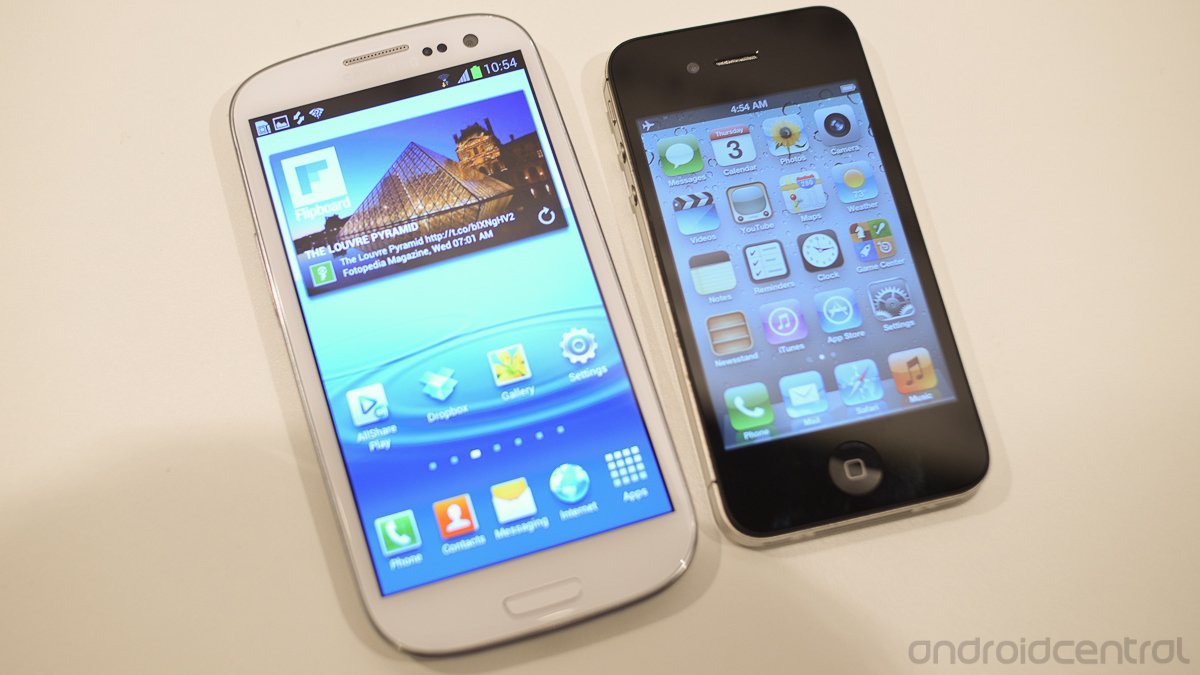
Whether you like Apple and their products or would love nothing more than to kill them just to watch them die, everything that matters that's happened in mobile since 2007 is because of Apple and iPhone, or has been in response to Apple and the iPhone.
Post iPhone ergo propter iPhone.
And as someone who loves technology even more than I love the iPhone, I'm well past tired of it.

Rene Ritchie is one of the most respected Apple analysts in the business, reaching a combined audience of over 40 million readers a month. His YouTube channel, Vector, has over 90 thousand subscribers and 14 million views and his podcasts, including Debug, have been downloaded over 20 million times. He also regularly co-hosts MacBreak Weekly for the TWiT network and co-hosted CES Live! and Talk Mobile. Based in Montreal, Rene is a former director of product marketing, web developer, and graphic designer. He's authored several books and appeared on numerous television and radio segments to discuss Apple and the technology industry. When not working, he likes to cook, grapple, and spend time with his friends and family.
